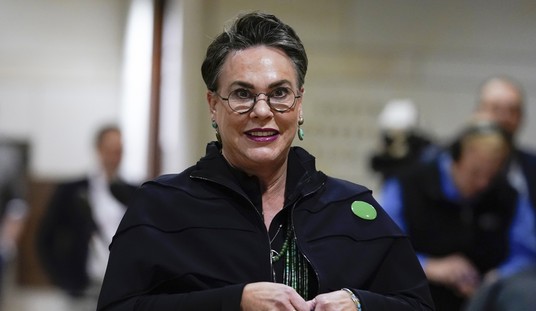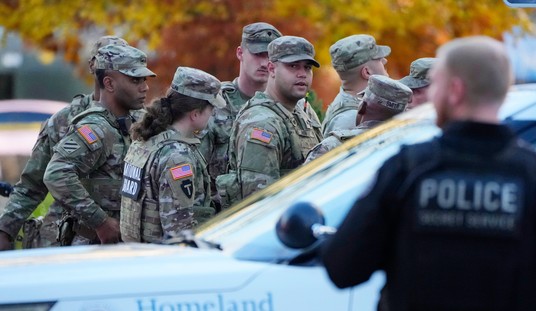
Christine Blasey Ford testifies before the Senate Judiciary Committee on Capitol Hill in Washington, Thursday, Sept. 27, 2018. (AP Photo/Andrew Harnik, Pool)
The Federalist’s Mollie Hemingway and policy director of the Judicial Crisis Network, Carrie Severino, have collaborated on a book entitled “Justice on Trial: The Kavanaugh Confirmation and the Future of the Supreme Court.”
One of the most fascinating revelations is that Team Trump had “dirt” on Christine Blasey Ford (CBF). However, they feared that if this material was presented during the hearings, it would be viewed negatively. The Trump team “understood that any criticism of Ford would be treated as a smear” and portrayed as “victim shaming.” In the era of #MeToo, they were unwilling to take that risk.
Statements from some of CBF’s past friends and acquaintances may offer a clue as to the nature of the information. At the time, several came forward with stories about her of love of partying.
Allegations made in the book: (via The Daily Caller)
Female classmates and friends at area schools recalled a heavy drinker who was much more aggressive with boys than they were.
Unnamed peers accused Ford of drinking to excess and accosting boys with some regularity as a student at the Holton-Arms School, a contrast with press accounts that cast her as innocent and naive during that period.
‘If she only had one beer’ on the night of the alleged assault, a high school friend said, ‘then it must have been early in the evening.’
Her contemporaries all reported the same nickname for Ford, a riff on her maiden name and a sexual act.
They also debated whether her behavior in high school could be attributed to the trauma of a sexual assault. If it could, one of them said, then the assault must have happened in seventh grade.
The tweets below from conservative writer D. C. McAllister bolster the comments from the book.
https://twitter.com/McAllisterDen/status/1046093850354372608
https://twitter.com/McAllisterDen/status/1046138217026789377
Another interesting detail discussed in the book is that, after watching CBF’s testimony against then-Judge Brett Kavanaugh before the Senate Judiciary Committee last fall, First Lady Melania Trump said to the President, “You know that woman is lying, don’t you?”
Melania saw what many other Americans saw.
In “Justice on Trial,” Hemingway and Severino claim that “millions of other women and men didn’t believe Blasey Ford” and for obvious reasons, this was “underreported by the media…Her credibility, if anything, was viewed as stronger because of her lapses in memory and because the odder parts to the story, such as her description of how she came to tell her husband about the assault. Despite the holes in her story, the media clung to these details.”
Who can forget the spectacle of the childlike, tearful and frumpy Dr. Christine Blasey Ford, whose emotional testimony riveted the nation last year? She claimed she had been sexually assaulted by Kavanaugh in either the summer of 1981 or 1982 (she wasn’t sure) when they were teenagers. Nor was she sure about whose house it was or, where it was or how she got home.
She had not one shred of corroborative evidence. None of the four witnesses she named as having been at the party have any memory whatsoever of it. I won’t repeat the long list of questions she could not answer about the alleged assault.
Yet the experience left her traumatized for life. She was afraid of flying and of small spaces. For this reason, the Senate confirmation process had to be put on hold while CBF drove from her home in California to Washington, D.C.
A body language expert analyzed CBF’s testimony and believed she’d been acting. She said the only genuine emotion CBF displayed was “fear” and who wouldn’t be afraid to perjure themselves in front of the Senate Judiciary Committee on national television? Another interesting point made by the analyst was that CBF had no mucus or no tears. Here is a clip of the analysis:
“Justice on Trial” was written to provide a “behind-the-scenes look at the dramatic Kavanaugh hearings of September and October 2018.”
The New York Post published an excerpt from the book on Sunday which can be viewed here. This excerpt details the role of Sen. Susan Collins (R-ME) whose pivotal swing vote was in demand by both sides. According to the book, “her husband was threatened with ricin in a letter addressed to their Maine home…In Washington, Collins’ neighbor said he was troubled that he was living next door to a “rape apologist,” as the Maine Republican tried to apologize for noisy protesters.”
It should be a fascinating read. It was certainly an extraordinary time.
“Justice on Trial” is scheduled to be released on Tuesday.













Join the conversation as a VIP Member